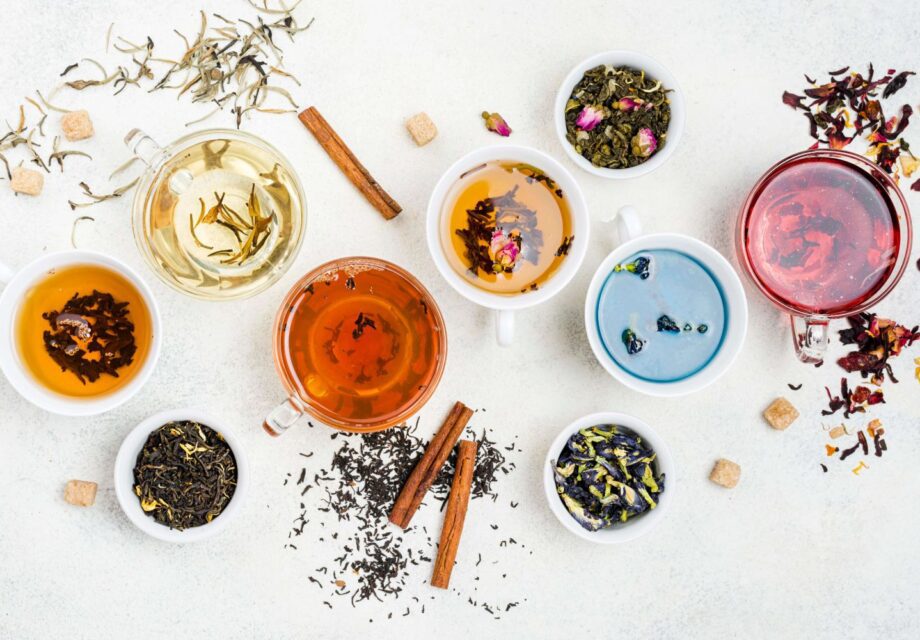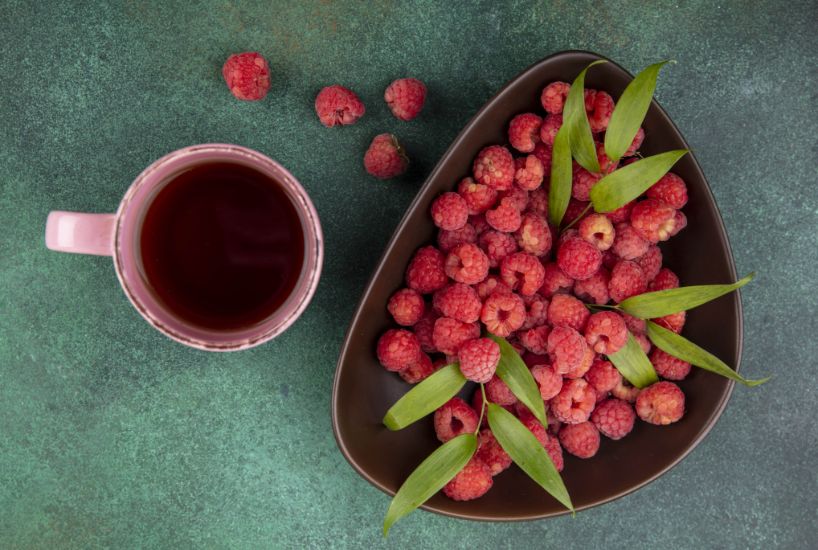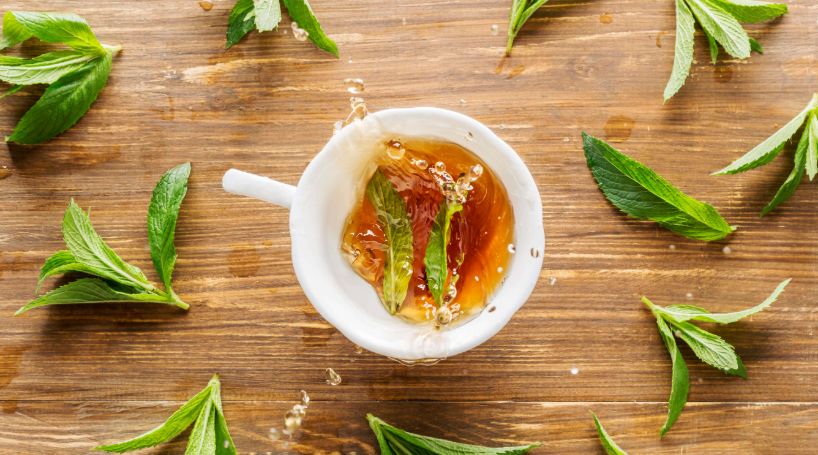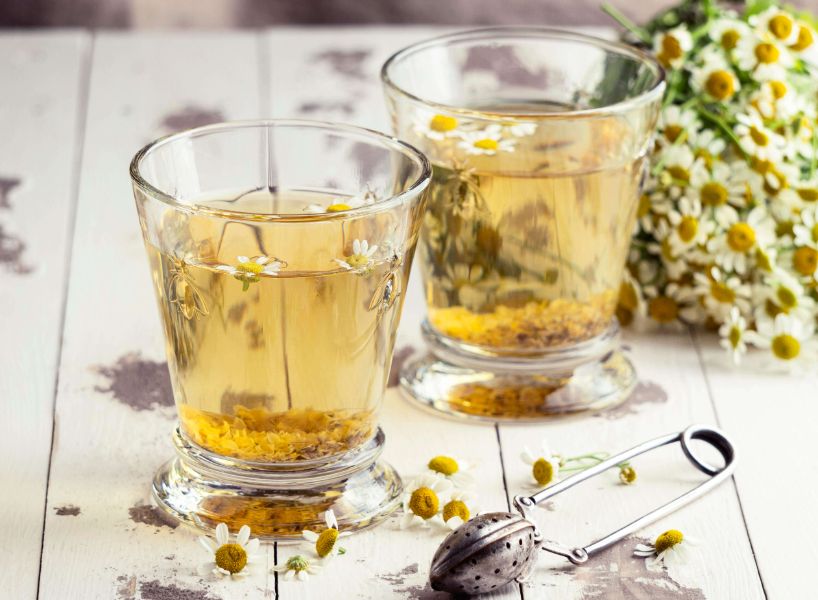
Pregnancy is a fulfilling experience, but it is also quite lengthy. When a woman becomes pregnant, she has to make many sacrifices and adjust her usual routines, from fitting into her favourite clothes to avoiding certain foods like sushi.
Though all of these sacrifices are well worth the end result, in the moment, they can feel incredibly restrictive and even overwhelming, especially if your hormones are already all over the place.
For those who regularly drink caffeine, arguably the toughest part of pregnancy is saying goodbye to the morning cup of brown. As you may know or are currently discovering the hard way, caffeine can be highly addictive, but given the risks it may present to your baby’s development, it is vital to find an alternative beverage during your pregnancy.
At Leaf, we stock a delicious range of teas, with our herbal range being one of our most popular. Keep reading to learn everything you need to know about enjoying some delicious herbal tea during pregnancy.
Herbal Tea’s Historical Role in Pregnancy
We are often surprised to learn about the significant role our delightful teas, especially herbal teas, have played in history. With the immense benefits that herbal teas offers, it has certainly influenced pregnancy throughout history.
Throughout history, herbal teas have been utilised during pregnancy by many cultures to ease childbirth, reduce morning sickness, and calm pregnancy-related anxiety and nausea.
Raspberry tea, in particular, has a long history of use for women. Raspberry tea contains a compound called Fragerine, which has been proven to impact the uterine muscles, improving blood flow and reducing labour pain.

While herbal teas are traditionally seen as beneficial during pregnancy, some may carry risks.
Are All Herbal Teas Safe During Pregnancy?
It’s crucial to consider how distinct two teas can be, with some teas containing plenty of caffeine and others containing no caffeine at all.
Because teas can vary significantly, some are perfectly safe to drink, while others pose a risk to the health of pregnant women and their babies.
Pregnancy Safe Herbal Teas
Though some herbal teas may pose a risk to your health, there are still plenty of delicious herbal teas that you can enjoy throughout your pregnancy, many of which may actually help you overcome some ailments caused by pregnancy
Some herbal teas worth drinking during your pregnancy include:
Peppermint Tea
Peppermint tea is a gentle and helpful option during pregnancy for easing nausea, vomiting, and flatulence. Many find it comforting to soothe an upset stomach and alleviate heartburn, which are common pregnancy discomforts. Peppermint tea has a lot of health benefits outside of pregnancy, with many choosing to enjoy the drink on a daily basis to improve their health.
Remember to enjoy it in moderation and check with your healthcare provider before adding it to your daily routine.

Rooibos Tea
Rooibos is a healthy and delicious choice for expecting mothers because it is caffeine-free and jam-packed with antioxidants. These antioxidants can help protect against cell damage, keeping you and your baby healthy throughout the pregnancy.
It’s important not to think that Rooibos is the magic solution to every problem; it is a genuinely healthy tea with many benefits that should be enjoyed.
Matcha Green Tea
Though it contains caffeine, matcha green tea can be incredibly beneficial to a pregnant woman’s diet when enjoyed in moderation.
Matcha tea has a whole host of benefits, including being rich in antioxidants such as catechins. These antioxidants protect cells from damage and boost the immune system, so matcha tea and pregnancy can go hand in hand if drank in moderation.
Matcha is also a rich source of vitamins and minerals, including vitamin C, A, and Iron, all of which are important for a baby’s growth and development. Its popularity is growing steadily, so it’s no wonder many people drink it during pregnancy.
Matcha contains caffeine, so it is recommended to drink it in moderation, limiting yourself to no more than one cup a day to avoid overconsuming it.
Ginger Root Tea
If you speak to any woman who is or has been pregnant, they will agree that one of the best ways to deal with nausea throughout pregnancy is by consuming ginger in any form.
Including ginger in your diet can be a huge help, from ginger tea during pregnancy to ginger biscuits. Finding any way to include ginger root tea in your diet can help relieve morning sickness and boost your energy, which is one of the many benefits of ginger root tea.
Ginger tea contains many anti-inflammatory properties, which can help ease pain and sickness throughout pregnancy. In addition to helping with nausea, it is also a great source of energy, but it is recommended that you don’t exceed your daily intake of no more than 4 cups.
Lemon Tea
Lemon tea can be a helpful drink during pregnancy, especially for managing nausea and staying hydrated. It also provides vitamin C and folate, which are essential for both the mother’s and the baby’s development, and can strengthen your immune system.
To prevent overconsumption, it’s essential to drink it in moderation and choose caffeine-free options such as herbal lemon-ginger tea. Lemon tea has a whole host of benefits, and it is delicious when served cold, making it a tasty option for those hotter days.
Unsafe Teas for Pregnancy
Though most teas are absolutely fine, you should try to avoid some teas with high caffeine content during your pregnancy. Teas that you should avoid include:
Chamomile Tea
There is a complex relationship between chamomile tea and pregnancy, with many healthcare professionals claiming it is safe to consume in moderation, while others recommend avoiding it entirely.
There are associated risks of chamomile overconsumption, such as premature labour, miscarriage and impact on fetal circulation. Some are more sensitive to tea than others, but avoiding chamomile tea during pregnancy is advised to be safe.

Parsley Tea
Pregnant women should avoid parsley tea, as it might raise the risk of miscarriage or impact fetal growth. Consuming large amounts of parsley, especially in concentrated forms such as tea, can exert estrogen-like effects and may cause complications.
If you’re enjoying some parsley on your Sunday roast, there’s no need to panic; just avoid eating parsley in large quantities or high concentrations, and you’ll be perfectly safe.
Wormwood Tea
Wormwood tea is known to stimulate the uterus and induce contractions, posing risks during pregnancy. It also contains thujone, a toxin harmful to the nervous system if consumed in large amounts. Therefore, it is advisable to avoid drinking this tea while pregnant.
Ginseng Tea
Ginseng tea is usually discouraged during pregnancy, particularly in the first trimester, because of possible risks such as birth defects and other issues. Although some research indicates it could be safe for short-term use in later pregnancy stages, further studies are necessary.
Ginseng has the potential to stimulate hormonal activity, which is why it is advisable to avoid its use during pregnancy.
Discover Delicious Teas With Leaf
Through this guide, we hope to have given you more insight into the herbal teas you should and shouldn’t drink during pregnancy. Herbal teas can be brilliant, natural sources of healthy vitamins and antioxidants, but they can also impact your hormones, so it is always recommended to research any tea that you consume.
Check out our range of delicious herbal teas to find the perfect tea to enjoy during your pregnancy.




